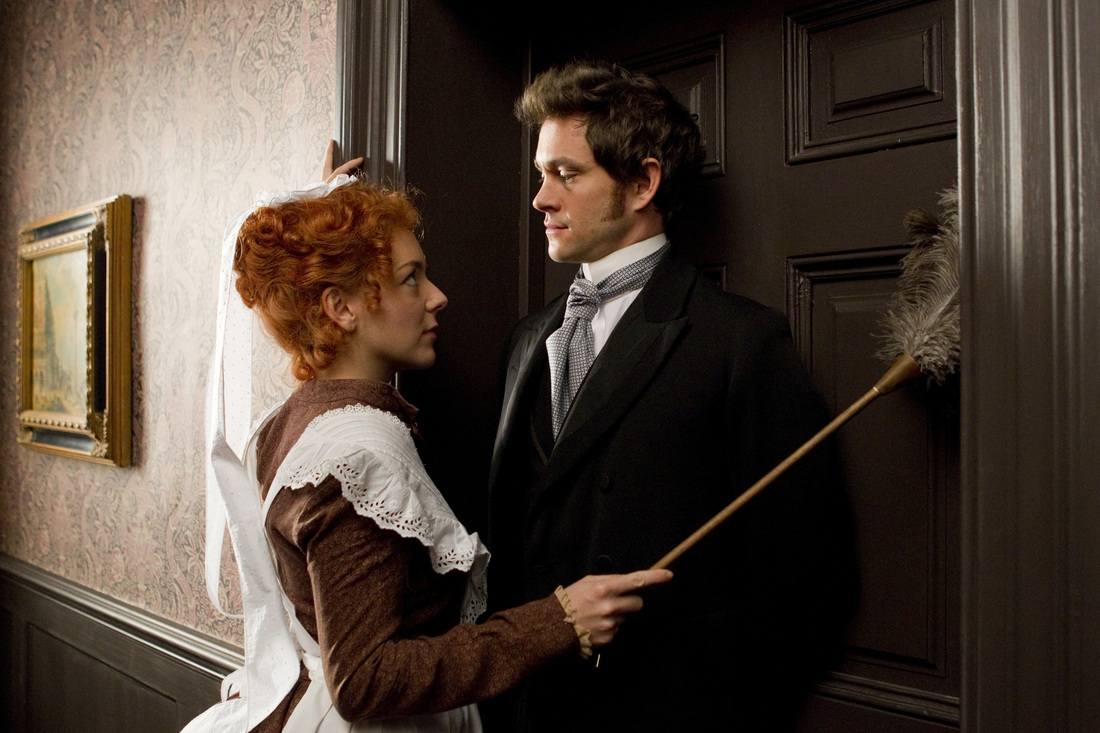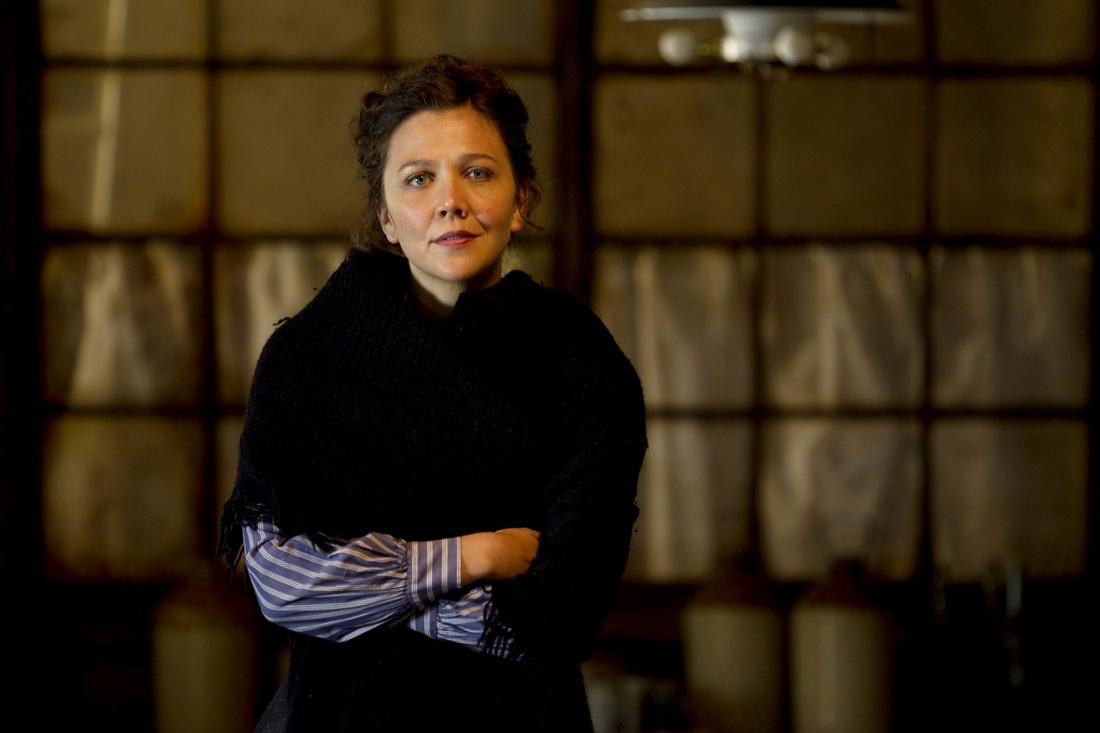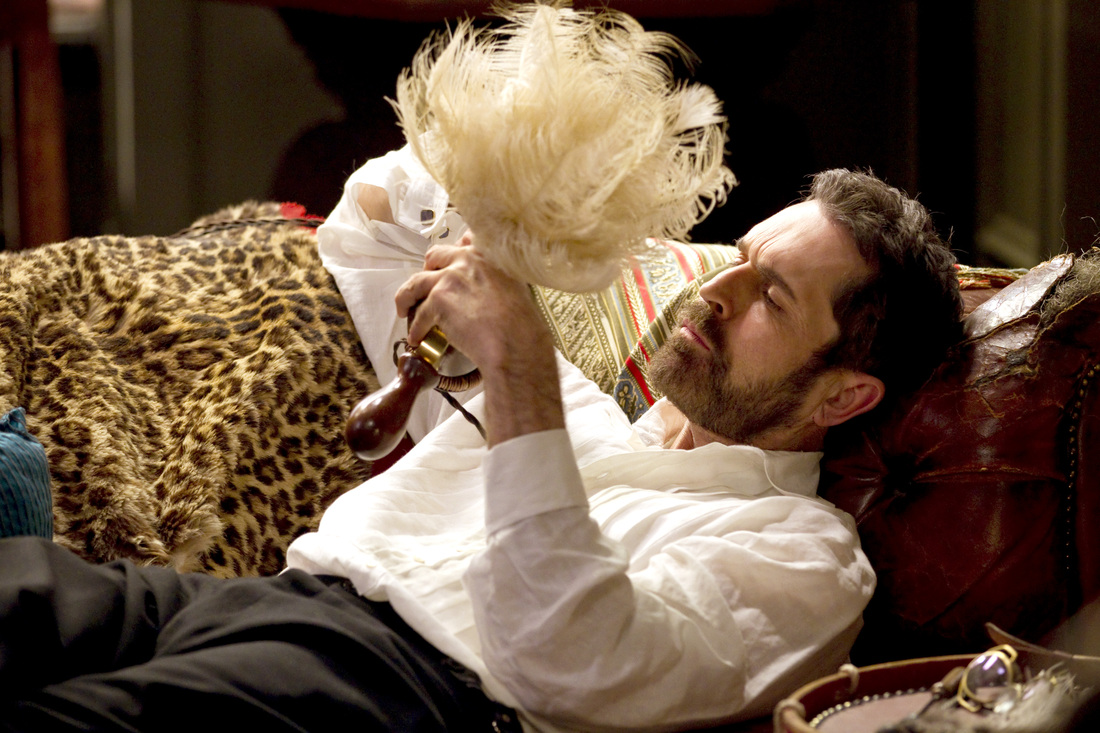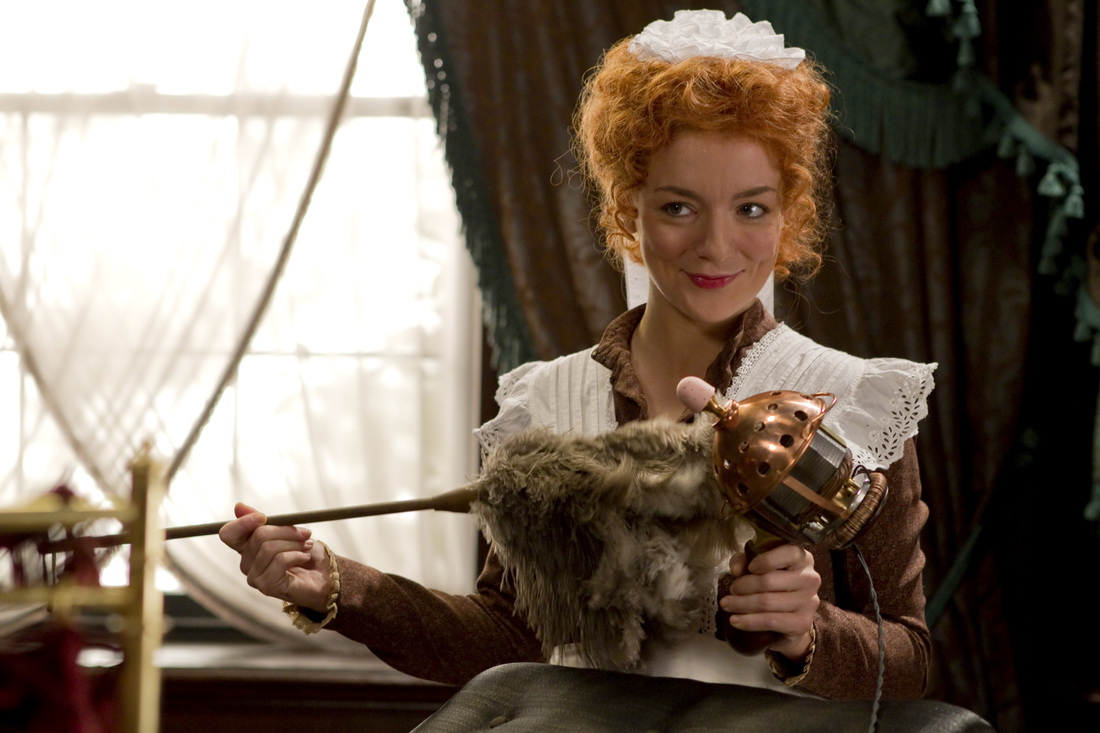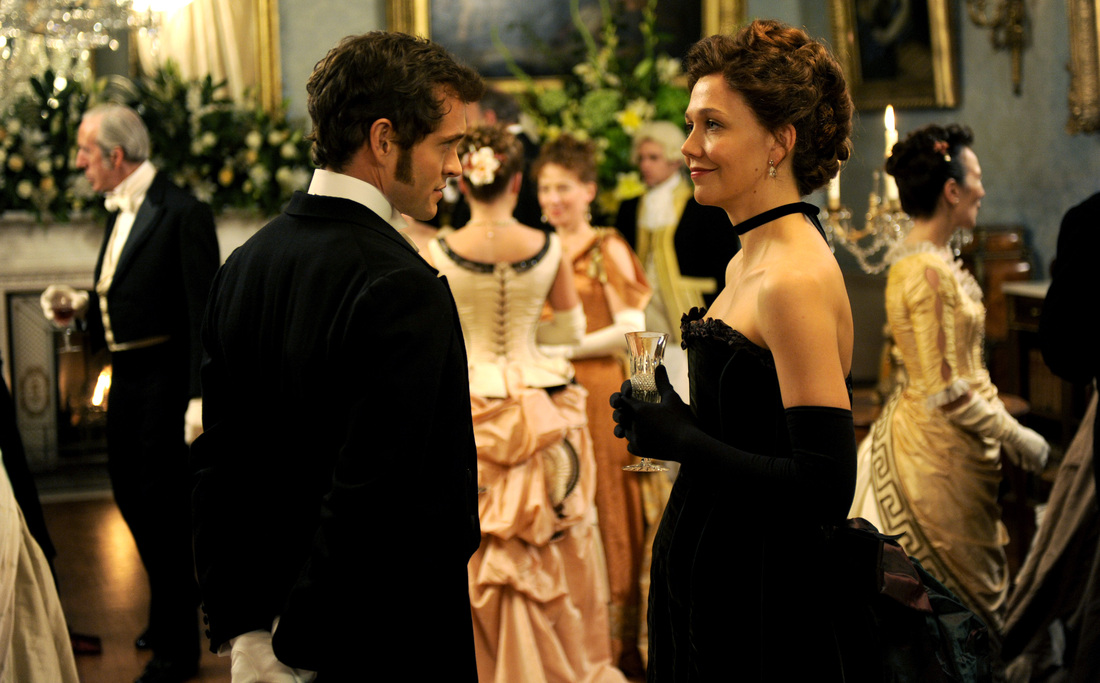|
How entertaining? ★★☆☆☆
Thought provoking? ★★☆☆☆ 19 September 2012
This article is a review of HYSTERIA. |
“This story is based on true events.
Really.” Opening title card.
“You are so wonderfully middle class,” Edmund St. John-Smythe (Rupert Everett) to Dr Mortimer Granville (Hugh Dancy)
I’m not sure what Maggie Gyllenhaal is doing in this silly take on the invention of the vibrator. Even her indie cool can’t lift this above a CARRY ON film meets yawn-some rom-com. There is some superficial social commentary on feminism and socialism, and those angles should’ve been the jumping off point. Instead we got delivered a seaside postcard sex lesson. Does that sound satisfying to you? Contrast the ambitious KINSEY, starring Liam Neeson and Laura Linney.
Really.” Opening title card.
“You are so wonderfully middle class,” Edmund St. John-Smythe (Rupert Everett) to Dr Mortimer Granville (Hugh Dancy)
I’m not sure what Maggie Gyllenhaal is doing in this silly take on the invention of the vibrator. Even her indie cool can’t lift this above a CARRY ON film meets yawn-some rom-com. There is some superficial social commentary on feminism and socialism, and those angles should’ve been the jumping off point. Instead we got delivered a seaside postcard sex lesson. Does that sound satisfying to you? Contrast the ambitious KINSEY, starring Liam Neeson and Laura Linney.
London, 1880, Dancy’s Granville commences proceedings promisingly, with a lecture to his boss about “germ theory” and the latest medical improvements that is their duty to be on top of. For his insolence, he is fired. We quickly find out he was orphaned, and pre-welfare state, was very fortunately adopted by a Lord (whose adopted brother is played by Everett). So we have Victorian and puritanical Britain, and a potentially interesting lead. This is squandered.
After multiple firings for his zeal in providing the best care for his patients, no matter their background, Granville claims he has lost hope. This one statement is meant to explain, it appears, his change in personality. Granville starts at a practice owned by Dr Robert Dalrymple (Jonathan Pryce). Dalrymple specialises in providing relief to women suffering from “hysteria”. He gives said relief through massage. We are shown all this as if the audience are expected to titter along with the narrative. Granville the physician, interested in the pioneering and upholding of the medical oath, somehow then turns into a bothersome conservative. What? And to make matters worse, some grim romantic-comedy tropes are thrown into the mix and made the backbone. Cue the two beautiful daughters of Dalrymple: genteel Emily (Felicity Jones), and firebrand Charlotte (Gyllenhaal). The signposts to the tedious and predictable denouement are then set up.
What a waste! There is an unbelievable cast at the filmmakers’ disposal, and plenty of parallels to be made between then and now. Since the banking crisis never has socialism been on the tip of everyone’s tongues, and female emancipation and equality is still being striven for. Instead we get a witless and foolish supposed history lesson.


